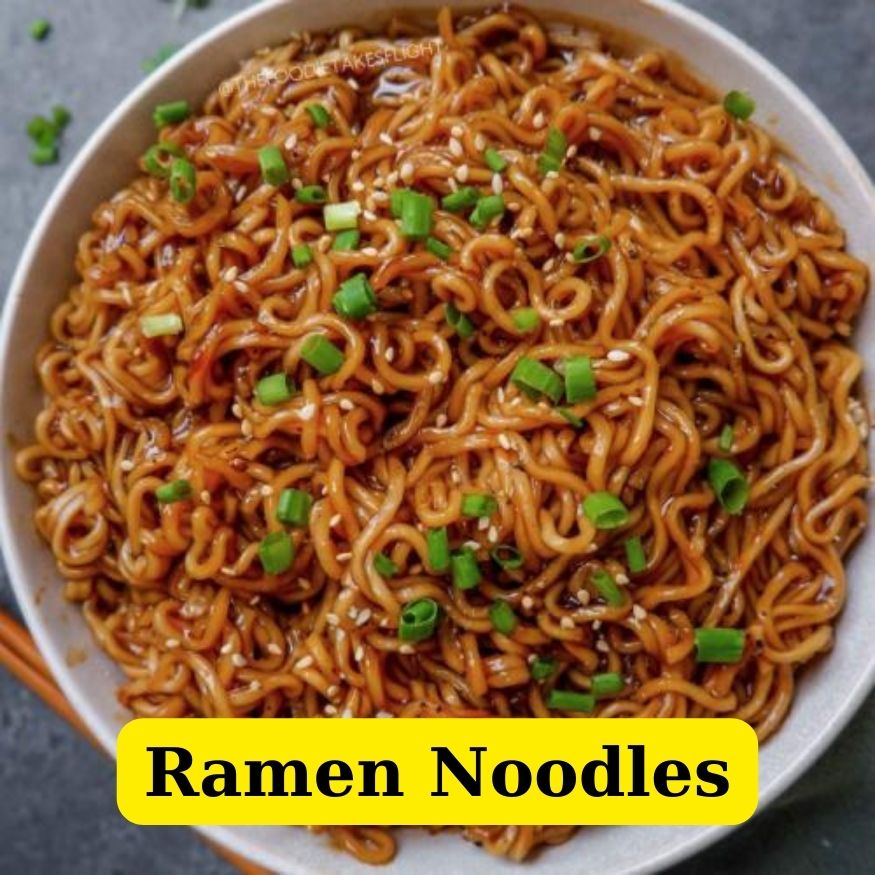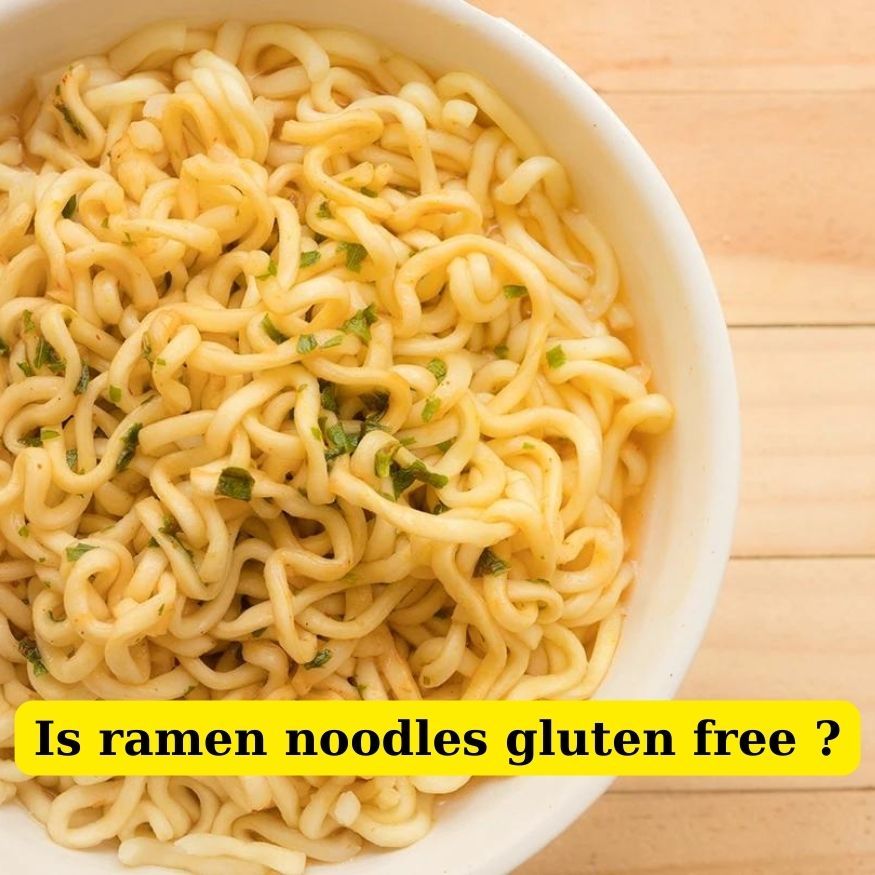Ramen noodles are a beloved dish enjoyed by many around the world. With their savory broth and chewy texture, ramen offers a comforting and delicious meal. However, for individuals with gluten intolerance or celiac disease, the question arises: are ramen noodles gluten free? In this article, we’ll explore the gluten content in traditional ramen noodles, recommend some of the best gluten-free ramen brands, and provide alternatives and recipes for enjoying ramen on a gluten-free diet.
Understanding Gluten in Ramen Noodles

What is Gluten?
Gluten is a protein found in wheat, barley, and rye. It provides elasticity to dough, helping it rise and maintain its shape. For most people, gluten is harmless. However, those with celiac disease or gluten intolerance must avoid it to prevent adverse health effects.
Traditional Ingredients in Ramen Noodles
Traditional ramen noodles are typically made from wheat flour, water, salt, and kansui (a type of alkaline mineral water). Since wheat flour contains gluten, traditional ramen noodles are not gluten-free. This poses a challenge for individuals who need to adhere to a gluten-free diet.
Are Ramen Noodles Gluten Free?

Analysis of Common Ramen Brands
Most commercial ramen noodles are made from wheat flour and, therefore, contain gluten. However, some brands offer gluten-free options, ensuring that everyone can enjoy this comforting dish without health concerns. It’s essential to read labels carefully and look for gluten-free certifications.
Cross-Contamination Risks
Even when purchasing gluten-free ramen, it’s crucial to be aware of cross-contamination risks. Cross-contamination can occur if gluten-free products are processed or packaged in facilities that also handle gluten-containing products. Always check for certification and, when in doubt, contact the manufacturer for more information.
Best Gluten-Free Ramen Noodle Brands
Lotus Foods
Lotus Foods offers a variety of gluten-free ramen noodles made from alternative grains such as rice and millet. Their noodles are not only gluten-free but also organic and non-GMO.
Annie Chun’s
Annie Chun’s provides gluten-free options, including their popular Brown Rice Ramen. These noodles are made from whole grain brown rice and are a healthy alternative to traditional ramen.
King Soba
King Soba specializes in organic, gluten-free noodles, including their Black Rice Ramen and Buckwheat Ramen. These noodles are rich in nutrients and provide a unique flavor and texture.
Koyo
Koyo offers gluten-free ramen made from organic rice flour. Their noodles are a great option for those seeking a gluten-free alternative without compromising on taste.
Dr. McDougall’s
Dr. McDougall’s Right Foods offers gluten-free, vegan ramen options that are convenient and healthy. Their noodles are made from rice and are perfect for quick, easy meals.
Gluten-Free Alternatives to Ramen Noodles
Rice Noodles
Rice noodles are a popular gluten-free alternative to traditional ramen. They are made from rice flour and water, providing a similar texture to wheat-based noodles.
Buckwheat Noodles
Despite its name, buckwheat is gluten-free. Buckwheat noodles, also known as soba, are a nutritious and delicious alternative to traditional ramen noodles.
Shirataki Noodles
Shirataki noodles are made from the konjac plant and are naturally gluten-free. They are low in calories and carbohydrates, making them an excellent option for those on a gluten-free diet.
How to Make Gluten-Free Ramen at Home
Ingredients Needed
- Gluten-free ramen noodles (e.g., rice noodles or buckwheat noodles)
- Gluten-free broth (vegetable, chicken, or beef)
- Protein of choice (e.g., chicken, tofu, or eggs)
- Vegetables (e.g., mushrooms, spinach, and green onions)
- Gluten-free soy sauce or tamari
- Optional toppings (e.g., nori, sesame seeds, and chili oil)
Step-by-Step Recipe
- Cook the gluten-free noodles according to the package instructions. Drain and set aside.
- In a pot, heat the gluten-free broth and bring it to a simmer.
- Add your protein and cook until done. Remove and set aside.
- Add vegetables to the broth and cook until tender.
- Return the protein to the pot and stir in gluten-free soy sauce or tamari to taste.
- Divide the cooked noodles into bowls and ladle the broth, protein, and vegetables over them.
- Garnish with your favorite toppings and enjoy!
Tips for Dining Out Gluten-Free
Communicating with Restaurant Staff
When dining out, it’s essential to communicate your gluten-free needs clearly to the restaurant staff. Inform them of your dietary restrictions and ask about the ingredients and preparation methods used for their dishes.
Safe Menu Choices
Look for menu items that are naturally gluten-free, such as rice dishes, grilled meats, and salads. Many restaurants now offer gluten-free menus or can modify dishes to meet your needs.
Conclusion
Ramen noodles can be enjoyed on a gluten-free diet with the right knowledge and alternatives. By choosing gluten-free brands, being mindful of cross-contamination, and exploring gluten-free noodle options, you can savor this delicious dish without worry. Explore the best gluten-free ramen brands and try making your own at home with our easy recipe.
FAQs
- Are all ramen noodles gluten-free? No, most traditional ramen noodles contain gluten as they are made from wheat flour. However, there are gluten-free alternatives available.
- What are the best gluten-free ramen noodle brands? Some of the best gluten-free ramen noodle brands include Lotus Foods, Annie Chun’s, King Soba, Koyo, and Dr. McDougall’s.
- How can I ensure my ramen is gluten-free? To ensure your ramen is gluten-free, choose brands that specifically label their products as gluten-free and check for gluten-free certification. Be mindful of cross-contamination risks.
- What are some gluten-free alternatives to ramen noodles? Gluten-free alternatives to ramen noodles include rice noodles, buckwheat noodles, and shirataki noodles.

Related Articles :